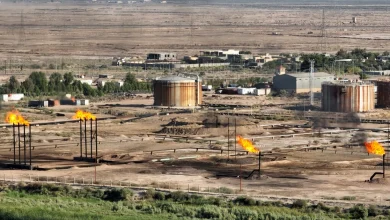Zulum Seeks World Bank Support for Borno’s Recovery, Flood Mitigation Governor Babagana Zulum of Borno State has called on the World Bank for support in rebuilding bridges destroyed by recent floods and addressing the long-standing issue of the silted Alau Dam. This appeal was made during a courtesy visit by the World Bank’s Country Director for Nigeria, Ndiame Diop, at the Government House in Maiduguri. During the visit, Governor Zulum highlighted the severe impact of the September 10 flood disaster, which caused significant damage to the state’s infrastructure and agricultural sector. “Flooding has greatly affected our farmers. Without comprehensive dredging, we cannot solve this problem,” Zulum stated, stressing the need for both technical and financial assistance to dredge waterways and acquire desilting equipment. The governor lamented the extensive damage caused by the floods, which disrupted waterways, destroyed farmlands, and devastated critical infrastructure across the state. Zulum also noted the broader challenges facing Borno, especially the recovery from over a decade of insurgency. He revealed that the Boko Haram insurgency had caused losses amounting to more than $6 billion in infrastructure damages in the state. “Out of the $6.9 billion losses incurred across the Northeast, Borno accounts for about two-thirds,” he said. Despite the setbacks, Zulum expressed optimism, citing the ongoing support from the World Bank and other partners in rebuilding the state. Zulum praised the World Bank’s ongoing initiatives, including the Multi-Sectoral Crisis Recovery Project, Agro-Climatic Resilience in Semi-Arid Landscapes, and the Nigeria Erosion and Watershed Management Project. He also called for additional support to revitalize agriculture, particularly the South Chad Irrigation Scheme, which he emphasized is crucial for both food security and the economic recovery of the region. The governor further requested that the Health Resilience Project be fast-tracked to improve healthcare services in the state. Diop, in turn, commended the progress made by the Borno State Government in education, infrastructure rehabilitation, and the recovery from insurgency. He highlighted ongoing World Bank programs such as the Adolescent Girls Initiative for Learning and Empowerment and the Better Education Service Delivery for All projects, which are aiding in rebuilding schools and empowering vulnerable populations. Zulum, alongside the World Bank delegation, visited the flood-damaged Fori Bridge and the silted Alau Dam to assess the scale of the destruction. The visit underscores the critical partnership between the Borno State Government and international development agencies in addressing the state’s post-insurgency and climate-related challenges

Governor Babagana Zulum of Borno State has called on the World Bank for support in rebuilding bridges destroyed by recent floods and addressing the long-standing issue of the silted Alau Dam. This appeal was made during a courtesy visit by the World Bank’s Country Director for Nigeria, Ndiame Diop, at the Government House in Maiduguri.
During the visit, Governor Zulum highlighted the severe impact of the September 10 flood disaster, which caused significant damage to the state’s infrastructure and agricultural sector. “Flooding has greatly affected our farmers. Without comprehensive dredging, we cannot solve this problem,” Zulum stated, stressing the need for both technical and financial assistance to dredge waterways and acquire desilting equipment.
The governor lamented the extensive damage caused by the floods, which disrupted waterways, destroyed farmlands, and devastated critical infrastructure across the state. Zulum also noted the broader challenges facing Borno, especially the recovery from over a decade of insurgency. He revealed that the Boko Haram insurgency had caused losses amounting to more than $6 billion in infrastructure damages in the state.
“Out of the $6.9 billion losses incurred across the Northeast, Borno accounts for about two-thirds,” he said. Despite the setbacks, Zulum expressed optimism, citing the ongoing support from the World Bank and other partners in rebuilding the state.
Zulum praised the World Bank’s ongoing initiatives, including the Multi-Sectoral Crisis Recovery Project, Agro-Climatic Resilience in Semi-Arid Landscapes, and the Nigeria Erosion and Watershed Management Project. He also called for additional support to revitalize agriculture, particularly the South Chad Irrigation Scheme, which he emphasized is crucial for both food security and the economic recovery of the region.
The governor further requested that the Health Resilience Project be fast-tracked to improve healthcare services in the state. Diop, in turn, commended the progress made by the Borno State Government in education, infrastructure rehabilitation, and the recovery from insurgency. He highlighted ongoing World Bank programs such as the Adolescent Girls Initiative for Learning and Empowerment and the Better Education Service Delivery for All projects, which are aiding in rebuilding schools and empowering vulnerable populations.
Zulum, alongside the World Bank delegation, visited the flood-damaged Fori Bridge and the silted Alau Dam to assess the scale of the destruction. The visit underscores the critical partnership between the Borno State Government and international development agencies in addressing the state’s post-insurgency and climate-related challenges.





